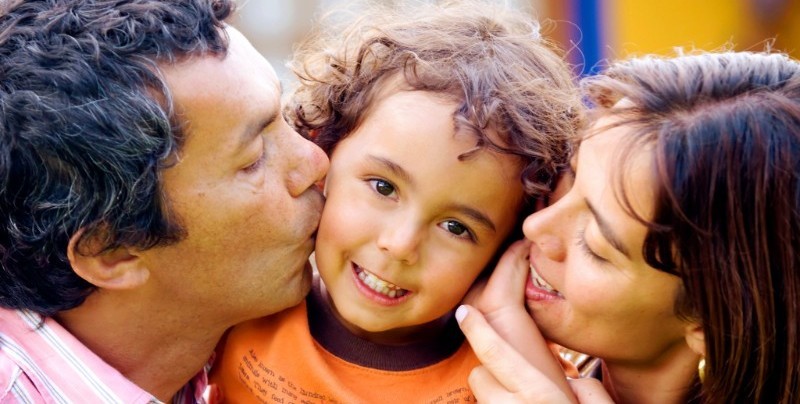An interview with facilitator Carmen Contreras
New parents often feel isolated and overwhelmed and struggle to meet their basic needs, but programs like Nobody’s Perfect Parenting can help.
Nobody’s Perfect Parenting (NPP) is a free program for parents and caregivers with children aged zero to five. It gives parents a chance to connect, share parenting experiences, learn about child health, safety and behaviour and strengthen their parenting skills and confidence.
Ruby Banga, The BC Council for Families’ Nobody’s Perfect Parenting Program Provincial Coordinator, interviewed Carmen Contreras, an experienced trainer and facilitator, about her most memorable moments facilitating the program and how Nobody’s Perfect supports parents through their challenges.
Ruby: Why did you decide to become a Nobody’s Perfect Facilitator?
Carmen: It was part of my work duties as a Family Support Worker for MOSAIC, and I became a trained facilitator in 2002-2003.
Ruby: What types of people participate in your NPP programs?
Carmen: I do all kinds of parenting programs. Groups at Mount Pleasant Neighbourhood House (MPNH) are very culturally and socio-economically diverse. We also get many fathers, as our programs are usually conducted in the evening or on Saturdays. I also do one-on-one programs with families who feel intimidated by the group format or have other barriers (court mandate, mental health issues, addiction, etc.), and parents who are going through a separation or divorce. Outside MPNH, I work most often with immigrant parents, refugees and new immigrants.
Ruby: What are some of the day-to-day parenting challenges participants face?
Carmen: I think one of the biggest challenges parents face is not meeting their basic needs, such as not eating or sleeping properly, and feeling isolated or overwhelmed with a new baby. Parents also experience difficulties with managing their child’s behaviour due to a lack of knowledge of ages and stages, having no family or support system and not having affordable housing. Immigrant parents face challenges with finding a job, language skills and lack of extended family support.
Ruby: How have the challenges that parents are facing changed since you started facilitating NPP groups?
Carmen: I think the challenges that parents face haven’t changed much, but parents are less and less equipped with skills, which may be due to a lack of networking with other parents. The frequency that parents use cell phones and social media is having an impact on their attachment with their children and their ability to be present. We are also stressing now, more than ever before, that parents need to practice self-care before they respond to difficult behaviour.
Ruby: What are some of the biggest lessons that parents learn from your sessions?
Carmen: I think parents appreciate the sense of community and networking with other parents. They don’t feel isolated or inadequate when they hear other parents are going through the same things. Participants get to relax and socialize with other parents while their children are looked after. No matter what their status is, what country they are from or what difficulties they are facing, nobody will judge them. The discussions will make parents feel comfortable, welcome and listened to.
Ruby: Do you find that participants support one another in the program and develop supportive friendships?
Carmen: This is one of the main goals of the program. I hope that parents continue to socialize after the program.
Ruby: How has this program made an impact on their lives?
Carmen: Since the groups are self-led, participants can choose how the program will impact them. Our job as facilitators is to make sure the group feels safe and cohesive, and to promote peer support and learning among the participants.
Ruby: What kinds of supports or resources are available to participants once they finish the program?
Carmen: There are other parenting programs, such as My Tween and Me, Parenting Matters and Circle of Security, as well as on-going facilitator’s support (if they are available as staff at the host organization) and referrals to other programs.
Ruby: What is one of your most rewarding moments as a facilitator?
Carmen: I meet former participants on the bus, at MPNH and other places and they tell me how the program made a difference in their lives. Their children have grown up and they look back with glee. They remember the fun they had.
One of the moments I most treasure is from one of my first programs I was co-facilitating with an Ethiopian-Canadian Facilitator. Our group was very diverse. Once during a session my co-facilitator and I stepped out to discuss something. When we came back, we realized that one of the participants had taken over the session and was writing the participants’ feedback from an exercise. The realization that a group can function by itself, once the tasks of bonding, safety and goal setting have been set-up was rewarding. I told my co-facilitator jokingly, “hey we can leave now, our job is done!”

Carmen Contreras has been working as a consultant, trainer and facilitator for more than 15 years. She delivers many parenting programs, including Nobody’s Perfect and My Tween and Me, as a coordinator of Family Resource Programs at Mount Pleasant Neighbourhood House and an independent facilitator (www.facilitatenow.ca).
To learn more about Nobodys Perfect Parenting, please visit the BC Council for Families. To learn more about Mount Pleasant Neighbourhood House and Family Resource programs, visit www.mpnh.org/families.
The BC Council for Families has edited this interview for length, conciseness and clarity.


